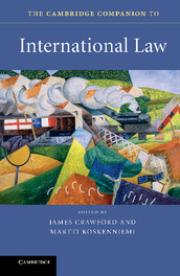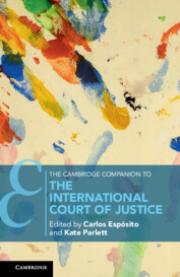
Faculty Contact Details
Room: 7, LCIL
Tel: 01223748772
Profile Links
Professor of International Law
Interests
International Law, History and Theory of International Law, Critical Approaches to International Law, Treaties, International Organisations, Global Governance, Political Economy, Politics of Knowledge, Oceans, Global Commons, Legal Geography, Maps
Research centres and interest groups
CV / Biography
Surabhi Ranganathan's current work traces the co-constitution of international law and the ocean from 1945 to now, unsettling what we take as the givens in relation to the spatial zones, resource allocations and functional jurisdictions effected by the law of the sea. It extends the history and critique of international law into new areas, such as ocean depths and bottoms, global commons, marine infrastructures, and techno-utopian imaginaries, and, from the underexplored vantage point of oceanic law-making, throws new light on current preoccupations of international legal histories: statehood and territory, decolonization and the new international economic order, the Cold War, race and empire, and the emergence of new legal forms and institutions.
Her writings on the oceans, the history and politics of international law, treaties, and global governance have been published in, among others, the European Journal of International Law, the British Yearbook of International Law, the American Journal of International Law, and the Journal of the History of International Law. Ranganathan is also the author Strategically Created Treaty Conflicts and the Politics of International Law (Cambridge University Press), a study of international legal thought and practice, exploring treaty conflicts in nuclear governance, the law of the sea, and international criminal justice, which was an EJIL Editors' Choice for 2015.
To know more about her research, you might read the interview, Garret Hardin, Arvid Pardo and the Fascinations of Interdisciplinarity (pp. 28-33); listen to Big Blue Juridical Planet on Fool's Utopia; hear the talk Unmaking the Ocean delivered at Oxford, or watch her Snyder Lecture: The Legal Construction of the Ocean at the University of Indiana. Short pieces include Techno-Utopia of the Deep on CUP's fifteeneightyfour blog; an essays The Law of the Sea (Needs a Rewrite) for The Dial Magazine, building on a prior visual essay for Visualizing Climate and Loss; and Seasteads, Land-grabs and International Law. You might also enjoy this conversation on different approaches to international law between Professor Andrea Bianchi and her, hosted by the Max Planck Institute Luxembourg. To find out more about her monograph, please look up the roundtable on the book hosted by Volkerrechtsblog, or hear this recording.
She has been invited as a Hauser Global Professor at NYU, and was Visiting Professor at the Graduate Institute, Geneva (spring 2020). She was a Visiting Fellow at the Center for History and Economics, Harvard in spring 2021, and a Fellow at Wissenschaftskolleg, Berlin (2022-2023). Since 2021, she is a member of the Aurora Centre at the Arctic University of Norway, Tromso.
Educated at NLSIU Bangalore, NYU (as a Vanderbilt Scholar), and Cambridge (as a Gates Scholar, and JC Hall Scholar at St. John's College), Ranganathan has clerked for the Supreme Court of India, and interned with UNHCR, UNICEF, the Telecom Regulatory Authority of India, and the Central Empowered Committee for the Environment established by the Supreme Court of India. She is an Editor in Chief of the Leiden Journal of International Law; and has served in various editorial capacities on the Cambridge Law Journal, the European Journal of International Law, and the British Yearbook of International Law. She has previously hosted some episodes of EJIL: The Podcast!
Selected publications
Books
The Cambridge History of International Law: Volume 2 International Law in Asia (ed)), forthcoming
Colonial Loot and Its Restitution (Special Issue), 2/2022 Santander Art and Culture Law Review (ed), 2023)
Strategically Created Treaty Conflicts and the Politics of International Law, 2015)
Cambridge Companion to International Law (ed), 2012)

Articles
'The Seabed and the South: From Stock Stories to New Histories of International Lawmaking' (2024) 15:2 Journal of Human Rights and Environmental Law 183-213
'The Participatory Scope of the Common Heritage Principle ' (2024) AJIL Unbound 88-92
'On Outi Penttila's 'Behind the Greening Virtues: A History of Environmentalism in International Law'' Ymparistojuridiikka 2/2024 s. 114-122
'The Law of the Sea (Needs a Rewrite) ' The Dial, Issue 4: Shipwrecks, May 2023
'Colonial Loot and Its Restitution: Current Developments and New Prospects for Law' (2022) 2 Santander Art and Culture Law Review 12-20
'The ‘English School’ of International Law: Soundings via the 1972 Jubilee Essays' (2021) 80 Cambridge Law Journal S126-S153
'Decolonization and International Law: Putting the Ocean on the Map ' (2021) 23(1) Journal of the History of International Law 161-183
'The Law of the Sea: 7 Essays on the Interfaces of Land and Sea' Visualizing Climate and Loss, January 2020
'We are Witnessing a Rediscovery of India's Republic ' New York Times, 27 December 2019
'Ocean Floor Grab: International Law and the Making of an Extractive Imaginary' (2019) 30:2 European Journal of International Law 573-600
'International Law and Economic Exploitation in the Global Commons: Introduction' (2019) 30(2) European Journal of International Law 541-546
'Seasteads, Landgrabs and International Law: Editorial" ' (2019) 32:2 Leiden Journal of International Law 1-10
'Nuclear Weapons and the Court' (2017) 111 American Journal of International Law Unbound 88-95
'The 2015 Judicial Activity of the International Court of Justice' (2016) 110 American Journal of International Law 504-525
'Global Commons' (2016) 27 European Journal of International Law 693-717
'Between Philosophy and Anxiety? The Early International Law Commission, Treaty Conflict and the Project of International Law' (2012) 83 British Yearbook of International Law 82-114
'The Value of Narratives: The India USA Nuclear Deal in terms of Fragmentation, Pluralism, Constitutionalization and Global Administrative Law' (2013) 6(1) Erasmus Law Review 16-31
'Visions of International Law: Lessons from the 123 Agreement' (2011) 51 Indian Journal of International Law 146-197
'Between Complicity and Irrelevance-Industry Associations and the Challenge of Regulating Private Security Contractors' (2010) 41 Georgetown Journal of International Law 303-376
'Reconceptualizing the Boundaries of Humanitarian Assistance: What's in a Name or the Importance of Being Earnest' 40(1) John Marshall Law Review 195-233
Book Chapters
"Against the Inequality of Ignorance" (with Maria Adele Carrai) in Maria Adele Carrai, Surabhi Ranganathan (ed(s)), Cambridge History of International Law in Asia ), forthcoming
"The Vexed Liminality of Hydrothermal Vents: An Opportunity to Unmake the Law of the Sea" in Irus Braverman (ed(s)), Laws of the Sea: Interdisciplinary Currents (Routledge, 2022)
"Accountability " (with Megan Donaldson ) in Jan Klabbers (ed(s)), Cambridge Companion to International Organisations , 2022)




 Facebook
Facebook  X/Twitter
X/Twitter  Instagram
Instagram  YouTube
YouTube  Flickr
Flickr  LinkedIn
LinkedIn